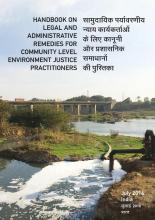Land Library
Welcome to the Land Portal Library. Explore our vast collection of open-access resources (over 74,000) including reports, journal articles, research papers, peer-reviewed publications, legal documents, videos and much more.
/ library resources
Showing items 1 through 9 of 28.Access to homestead land, and housing in turn, are basic requirements for human survival. Every citizen needs to have a safe, secure and healthy place to live, work and lead a life of dignity.
This report produced by Centre for Policy Research (CPR) a comprehensive and systematic study of Supreme Court cases on land acquisition from 1950- 2016 and examined particular conflicts involving major dams, special economic zones, housing complexes and industrial projects.
The brief focuses on Sustainable Land Management (SLM). Eradicating poverty, reducing inequalities, and advancing inclusive growth are directly linked to how we manage our planet’s terrestrial ecosystems and the goods and services they provide.
The handbook does not specifically list judicial and court related remedies to any of these problems.
The paper gives historical background of the land acquisition process in India and the struggle since 1824. It descrbed the political processes in which the LARR Act 2013 came into being in Indian Parliament.
This report is in pursuance of the communication of the NITI Aayog, Govt. of India, vide order No.
Responding to the immediate challenge of how we sustainably intensify the production of food, fuel and fiber to meet future demand without the further degradation of our finite land resource base, Land Degradation Neutrality (LDN), which emerged from the UN Conference on Sustai
This new policy brief was commissioned by the Foundation for Ecological Security (FES) and has been co-authored by Shalini Bhutani and Kanchi Kohli. It captures in one document the SC’s judgement, the course it has taken there after and the policy options that prevail.
This brief presents an analysis of the actual mechanics of these regulations, and how they relate to each other. In doing so, authoher reaches exactly the opposite conclusion of the government of India and the financial media.



